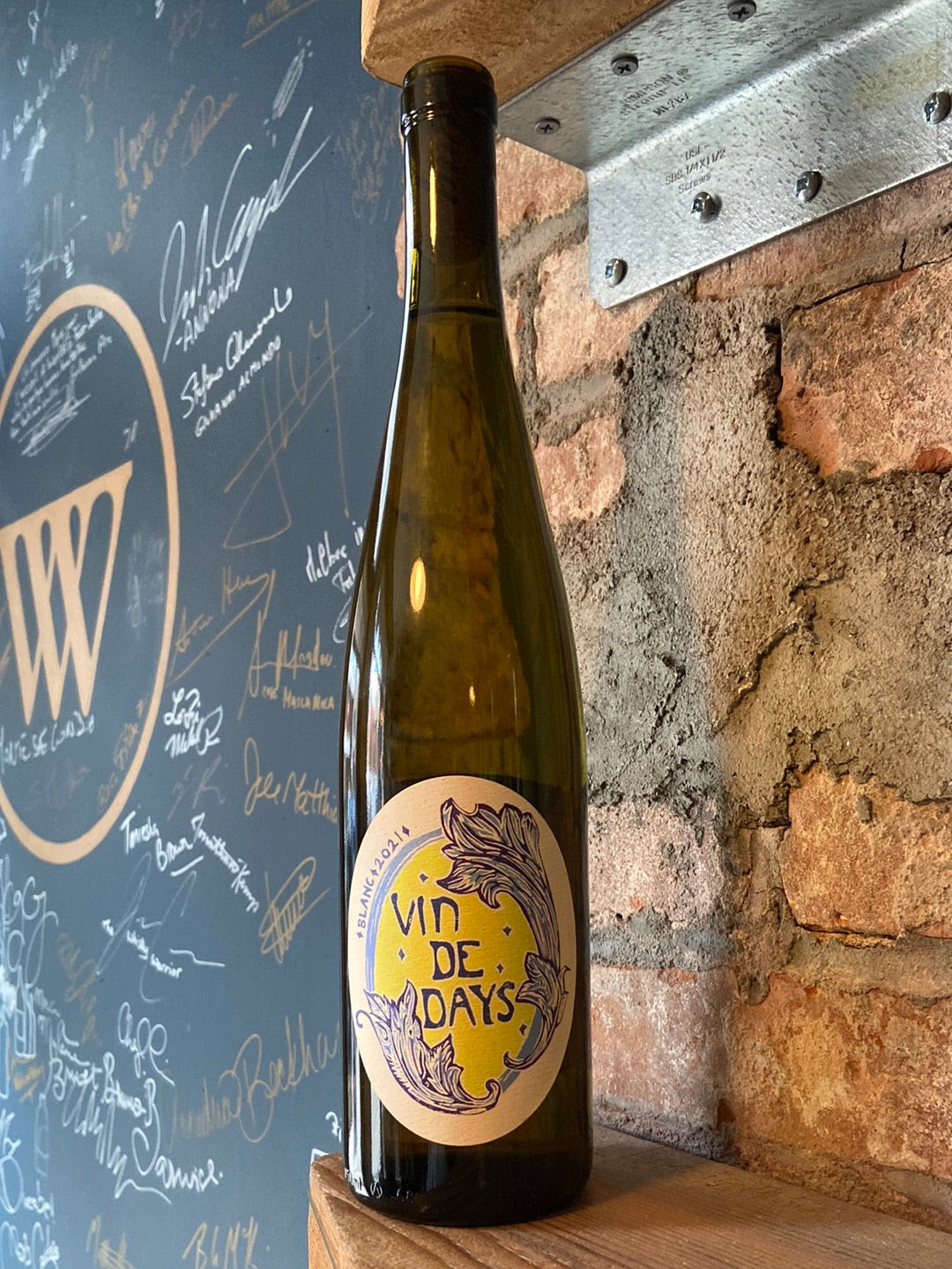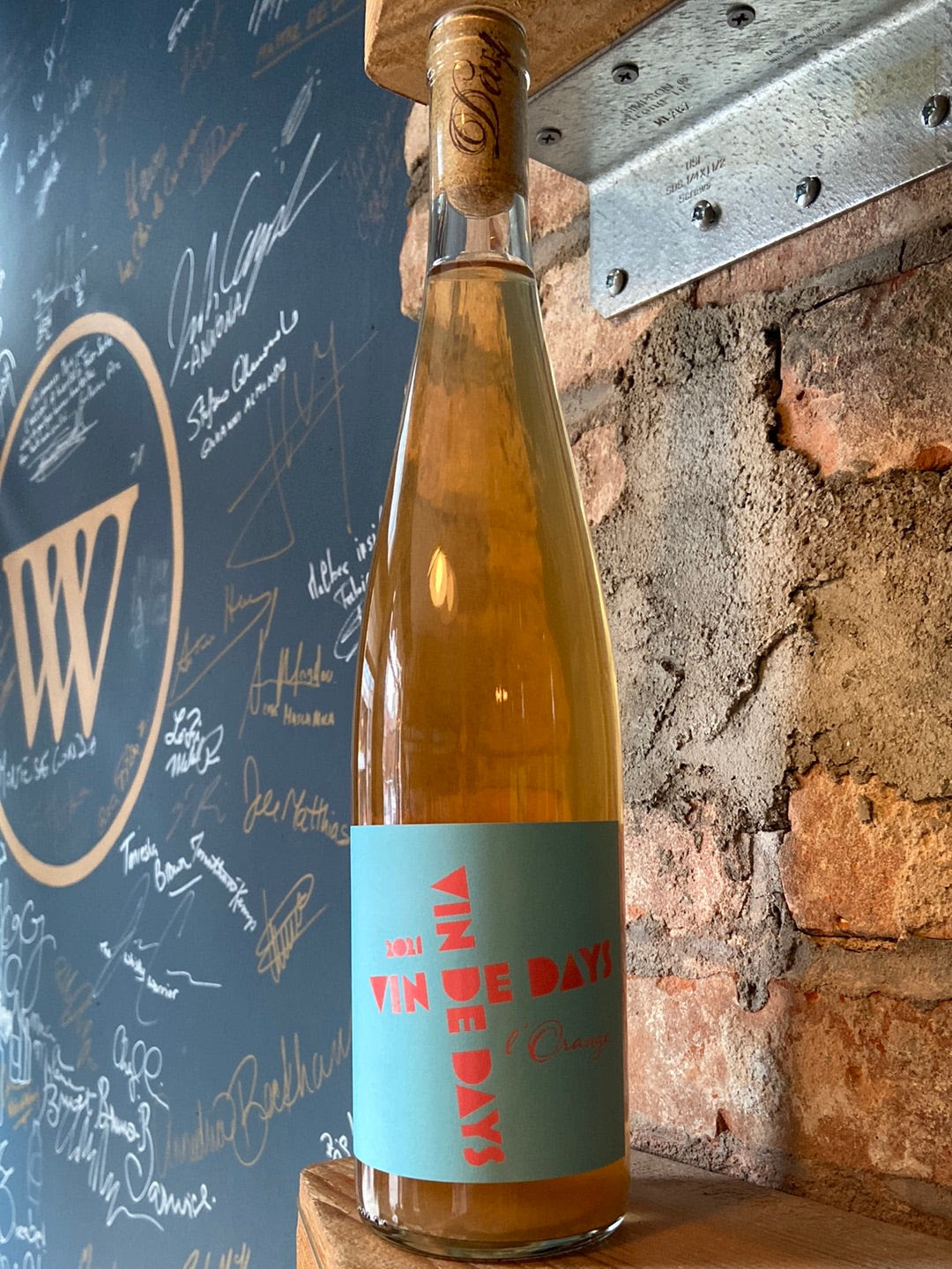Oregon's Brianne Day: Growing With A Conscience
Oregon's Brianne Day: Growing With A Conscience
Scaling-up without sacrificing priciples
For the last decade, Brianne Day has made low-intervention wines on her own terms while working hard to develop long-term relationships with her grape growers. Illustration by Jonathan Kemp
It's no secret that we are fans of Brianne Day and her Willamette winery. Brianne has grown her Willamette Valley winery from 125 cases of Pinot Noir in 2012 to almost 15,000 cases 10 years later, featuring over a dozen creative bottlings. Her growth has always been conscientious, fostering lasting relationships with small, family-operated vineyards, all of which practice organic viticulture, at minimum. In 2020, many winemakers backed out on their fruit contracts because of the smoke. Brianne stood by her growers and held up her end of the bargain.
Climate change is only making this type of commitment from winemakers more important. Reports just came in Friday morning that frost in the Willamette may result in as much as a 50% loss of the grape crop this vintage. Supporting winemakers and vineyards every year is one way that we can help. Sometimes it's sticking with winemakers when smoke taint compromises their wines: this was certainly the case with Brianne's 2020 vintage, which were a study in how to 'make lemonades out of lemons.' She even named a wine Lemonade after this concept, when she was forced to make rosé out of Pinot Noir grapes since keeping them on the skins long enough to make a typical red wine would have intensified the smoke taint.
On our end, as much as we're always down to try the latest new things, we also want to strike a balance where we're supporting the long arc of a winemaker's career. Even before climate destruction was intensifying to current levels, a lot of the importers and buyers we looked up to emphasized the importance of sticking with winemakers through thick and thin, good and bad vintages. At the scale we're talking about, this kind of thing can have huge consequences for small producers. Farming is one of the most stressful occupations out there. In the US, it's estimated that suicide rates among farmers is 3.5 that of the general population, the highest of any occupation. So when we see someone like Brianne keeping contracts with her farmers despite smoke taint, this is no small act of virtue signaling, but a decision with serious consequences.
On a more, ahem, positive note, 2021 was a terrific vintage in the Willamette. Brianne Day's Vin de Days line — a red, white, and orange made for easy drinking — is one of her best. There was no fire, and no loss of the scale of this year, so we're enjoying it and not taking the fruits of the harvest for granted.
Brianne and I met many years ago and became fast friends. That friendship lead me to work my first harvest in Oregon with her in 2016. In 2015 Brianne released her first Vin de Days Rouge, a carbonic Pinot Noir from Johan Vineyards, after she and I had discussed my desire to have a wine from her to pour by the glass at the restaurants I was managing.
Seven years later, the Vin de Days line consists of 3 wines: an aromatic, zesty Blanc; a citrusy, refreshing l'Orange; and a bright, chillable Rouge. All three are made in a style that makes them ready to drink immediately, favoring lower alcohols and minimal oak influence.
At a time when the price of everything seems to keep going up and up, it's great to have these accessible, delicious wines back on the shelf. The accessible part is also crucial. Though it is usually the case that we are in the business of championing the underdog over Big Wine; advocating for the independent vigneron over the large-scale, industrial producers; there is also a case to be made for scaling up the type of winemaking and farming we respect. If natural wine is only available in tiny quantities in our most expensive cities — and scarcity drives up the prices of wines originally intended to be humble, rustic alternatives to luxury brands —then many of the values espoused by the natural wine movement are quickly diminished.
Brianne Day is among the crowd whose wines I'm proud to see in a Whole Foods, for example. I look forward to the day when all grocery store wines are made as responsibly and as thoughtfully as hers, when low-intervention wines made with responsibly-farmed fruit can be something for everyone. Brianne's growth and success has not come easy, but it shows a way forward that can have a lot of impact, and something that would be great to add to the conversation around natural wine. As we look for others to follow in Brianne's footsteps, we'll be drinking the delicious wine that comes from her foot-stomping.
Cheers,
Jonathan Kemp
|
|||||||
|
|||||||
|









Leave a comment